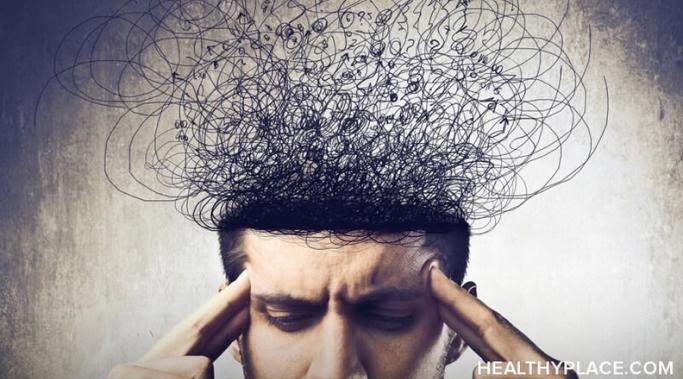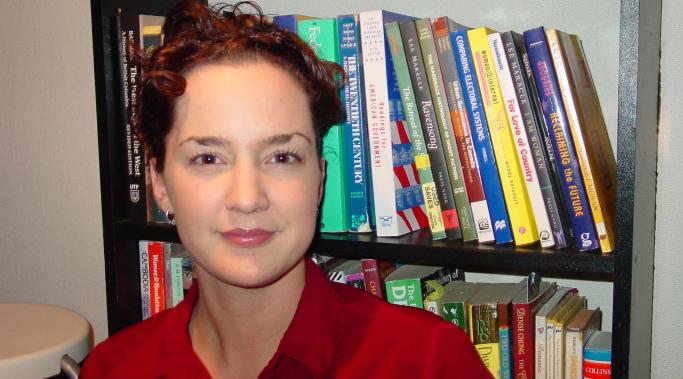Blogs
Should conversion therapy be banned? The controversial--and illegal for minors in some states--practice tries to change the sexual orientation of the patient. It's also known as reparative therapy, and is often practiced by fundamentalist Christians. It is opposed by all reputable medical organizations, from the American Psychological Association (APA) to the American Academy of Pediatrics. There is considerable debate over whether or not it is abusive--one California court put a minor in foster care after her mother sent her to a dubious psychiatric facility in Utah to cure her lesbianism--which leads to a question: Should conversion therapy be banned?
Handling a self-harm, self-injury relapse can seem impossible after you've done all the work that goes into recovery. After all, recovering from self-harm is a long and harrowing process, but it is possible to go into full recovery and when you do, it is one of the best feelings you can experience. Struggling so long with the issues, reasons, and various feelings and emotions that lead to self-injurious behavior can leave us downtrodden and ready to give up. Not giving up gives us a sense of purpose and drive. We are trying to accomplish the major goal of overcoming a self-injury addiction. But with all addictions, there is the possibility of relapse. How do you handle a self-harm relapse?
Professionalism is one reason why we shouldn't be afraid of secular (non-religious) counselors. When the Duggar family discovered their son Josh was molesting his sisters and a family friend, they considered going to the police until a family friend told them "government" programs were not a good way to treat Josh's sexual misconduct (What Is Rape? Was I Raped?). As a result, rather than sending Josh to a competent therapist, they sent him to build houses for a few months. Sadly, fear and mistrust of secular counselors is common in the religious community. This mistrust stems from the belief that social workers will take your children away if you spank them or that the therapist will be hostile to a person's faith. Therapists are even derogatorily referred to as "alphabet soup," but we shouldn't be afraid of secular counselors.
You may not know it, but eating disorders affect your teeth. Eating disorders take their toll on your health. Maybe you’re feeling that you’re always fatigued or that you get sick more often than not. Perhaps your skin’s gotten dry or your hair’s starting to fall out. But another impact of eating disorders is on your teeth. Eating disorders that go untreated could cause a number of issues with your oral health such as gum disease, erosion of tooth enamel and even loss of teeth.
Eating at a restaurant when you have binge eating disorder can become stressful and entirely too invasive. Everyone should have the right to eat what they want and how they want in peace. It shouldn't occur to others to question your dietary habits or problems, especially when you have no idea if the person you're talking to has an eating disorder. Here are some of my tips about eating at restaurants when you have binge eating disorder.
Parenting and anxiety frequently go hand-in-hand, and it can be difficult to determine when parenting worries are normal and when they escalate to unhealthy levels. The term normal is a loaded one, of course. Here, it implies no judgement whatsoever. It's a mathematical term indicating that parenting anxiety is typical, experienced by a majority of people as they lovingly raise and care for their children. It's common for us parents to wonder about our own parenting and anxiety and whether it's normal or unhealthy.
I hear from many people who are suicidal and these people give many reasons for suicide; but these reasons for suicide are typically lies from their brains called cognitive distortions. For example, one lie might be the idea that everyone is a selfish liar, or, put more simply, everyone is “bad” and the suicidal person cannot live in a world where everyone is bad. I think it’s really important to address this because, certainly, if you really did think everyone was selfish or everyone was a liar then being suicidal would be much more natural. But the fact Is, this (and other) reasons for suicide are false.
Fake concern about anxiety and depression has probably been with us since homo sapiens first swung out of the trees around 200,000 years ago. Humans with depression, anxiety and panic, mental illness, and mood disorders have always been discriminated against, in virtually every society in history. That said, great strides have been made to end mental health stigma, and portray people with mental health issues as just that: ordinary people. However, some of the concern certain people express about depression and anxiety is actually little more than a smokescreen for more discrimination. In other words, it's a fake out. Here's how to spot fake concerns about anxiety and depression and protect yourself against it.
Politics and the impact of mental illness stigma is a topic that has intrigued me for a number of years, and the discussion of politicians experiencing mental illness stigma raises a number of important points and questions. There are many politicians who certainly do have a mental illness, but you will never know about it, especially if it is a highly stigmatized mental illness such as schizophrenia. It is unfortunate that several stigmatized individuals in our society assert that because you have a mental illness, you cannot, and should not, rightfully be a person who can be trusted to represent the interests of society on the political stage.
Happiness, hope and harmony can be created in your life by adding color. Some days are filled with positive events that are full of vibrant colors and other days are filled with challenges that can be dark and gloomy. As I open my eyes each morning and wrestle with my thoughts about the upcoming day, I try to see a rainbow of positive color to get me started off on the right foot. One way to create happiness, hope and harmony is to notice the colors around you.










I believe she will only be able to rid herself of her demons, and hopefully her BPD as well, when she's ready to confront the abuse of her father. If she can put the blame where it belongs, she may stop projecting that victim/perpetrator cycle on the present men in her life. These demons are a metaphor for the purgatory she has created for herself. That reality has consequences in the real world, but it need not be real in the tangible sense. Exorcising her demons will require the expenditure of real physical energy and probably the destruction of aspects of her personality. If this ever happens, and it's possible but not probable, then these demons will evaporate. They are only as real as one's personality is real. In short, reality is not the question, it's what you make of the things you feel to be real.